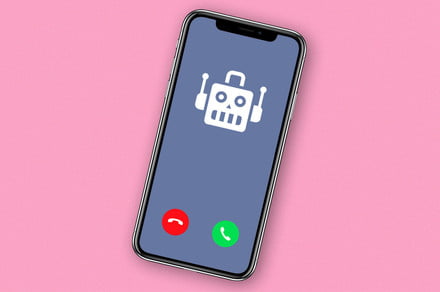It looks like Ajit Pai wants to step up the fight against robocalls. The Federal Communications Commission chairman proposed a new law that would make overseas robocalls and malicious text messages illegal.
The new law will be voted on by the FCC on August 1, and according to Pai, already has support from more than 40 state attorneys. The measure isn’t a new concept — it simply formalizes rules already approved by Congress last year, authorizing the FCC to pursue international robocallers.
“Scammers often robocall us from overseas, and when they do, they typically spoof their numbers to try and trick consumers,” Pai said in a statement. “Call center fraudsters often pretend to be calling from trusted organizations and use pressure tactics to steal from Americans. We must attack this problem with every tool we have.”
The new measure could have more of an impact than you might think. According to Pai, overseas robocalls are common, and they often spoof their numbers to appear local.
Outrage over illegal robocalls has grown over the past year, and the FCC has introduced other measures to help prevent them. For example, the FCC recently approved a measure that helped clarify that carriers were allowed to block robocalls by default without fear of legal action. Some carriers offer spam call blocking features, however, customers have to opt in to the feature. The FCC has also started pressuring carriers to approve the SHAKEN (Secure Handling of Asserted information using toKENs) and STIR (Secure Telephony Identity Revisited) protocols into their networks. These protocols are aimed at better authenticating Caller ID, ensuring that users can know whether or not the call that they’re getting is from a valid and active phone number.
Robocallers seem to be getting smarter and smarter. In May, the FCC warned of a new scam in which customers were baited into calling a number back so that they could be billed toll charges. Many of the numbers came from the “222” country code, meaning that they originated in the African country of Mauritania.
Of course, considering the fact that robocalls are getting smarter and smarter, there’s no telling if current robocall blocking tech will still work in a few years time. Still, any attempt to block them is a step in the right direction.
Editors’ Recommendations
- FCC could require carriers to block robocalls. Here’s why they didn’t before
- FTC and authorities crack down on companies responsible for 1 billion robocalls
- Robocalls: Don’t be fooled by the one-ring scam, FCC warns
- Cell phone carriers now have the power to stop robocalls. When will they use it?
- What is RCS messaging? Here’s all you need to know about the successor to SMS

